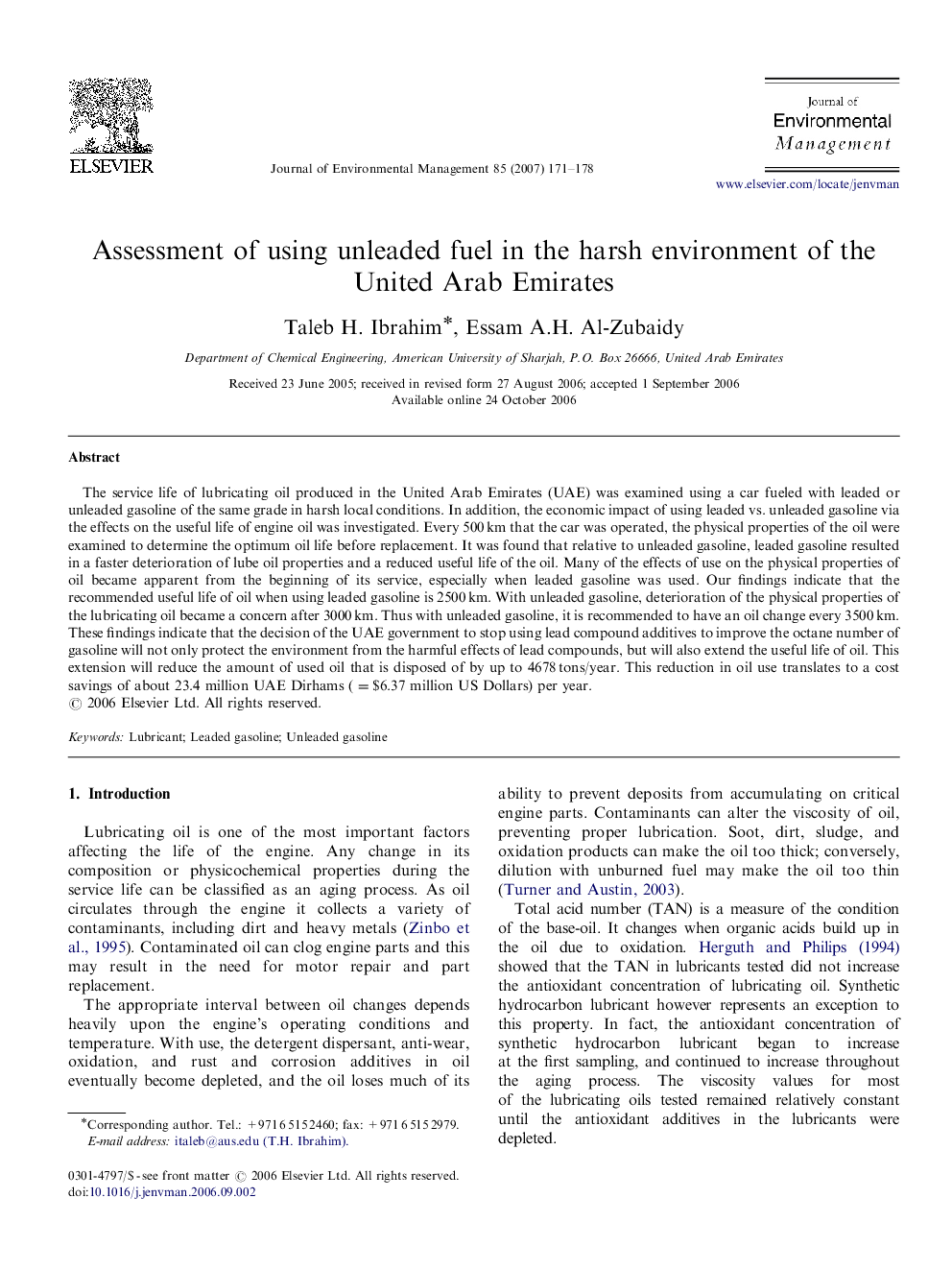| Article ID | Journal | Published Year | Pages | File Type |
|---|---|---|---|---|
| 1058591 | Journal of Environmental Management | 2007 | 8 Pages |
Abstract
The service life of lubricating oil produced in the United Arab Emirates (UAE) was examined using a car fueled with leaded or unleaded gasoline of the same grade in harsh local conditions. In addition, the economic impact of using leaded vs. unleaded gasoline via the effects on the useful life of engine oil was investigated. Every 500Â km that the car was operated, the physical properties of the oil were examined to determine the optimum oil life before replacement. It was found that relative to unleaded gasoline, leaded gasoline resulted in a faster deterioration of lube oil properties and a reduced useful life of the oil. Many of the effects of use on the physical properties of oil became apparent from the beginning of its service, especially when leaded gasoline was used. Our findings indicate that the recommended useful life of oil when using leaded gasoline is 2500Â km. With unleaded gasoline, deterioration of the physical properties of the lubricating oil became a concern after 3000Â km. Thus with unleaded gasoline, it is recommended to have an oil change every 3500Â km. These findings indicate that the decision of the UAE government to stop using lead compound additives to improve the octane number of gasoline will not only protect the environment from the harmful effects of lead compounds, but will also extend the useful life of oil. This extension will reduce the amount of used oil that is disposed of by up to 4678Â tons/year. This reduction in oil use translates to a cost savings of about 23.4 million UAE Dirhams (=$6.37 million US Dollars) per year.
Related Topics
Physical Sciences and Engineering
Energy
Renewable Energy, Sustainability and the Environment
Authors
Taleb H. Ibrahim, Essam A.H. Al-Zubaidy,
